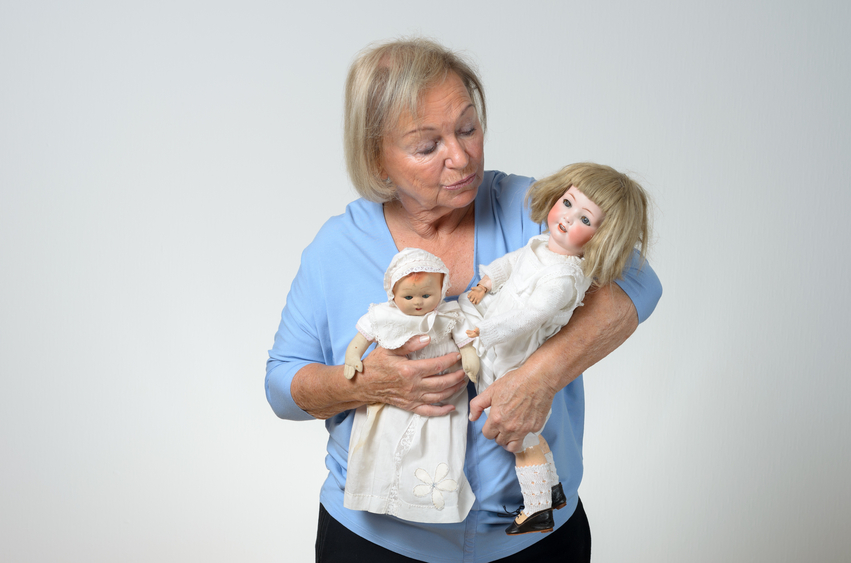Engaging older adults living with dementia with the use of baby dolls or toy pets has long been a controversial practice in the health care community and with little research to substantiate claims from either side of the debate, it is difficult for family caregivers to know what is best for their loved one.
On one hand, senior advocates would argue that treating our elders like young children is not allowing them their dignity in old age, despite what cognitive challenges they may be facing. To watch your elderly mother caring for a doll, manipulating toys or talking to a stuffed animal can be painful to watch and a sharp reminder of the person they once were.
On the other hand, accepting the current situation and presenting all possible opportunities for seniors with Alzheimer’s or other dementias to be as engaged and communicative as possible can also be viewed as making the best out of a difficult situation. Anything that brings a few moment of joy, of recognition, memory and contentment should be carefully considered. Just as music has the ability to unearth long forgotten memories, for many of our elders, caring for a beloved child or pet (even if it’s not real) brings back a sense of meaning to those who might otherwise continue to withdraw from social contact.
Because many people with dementia can become agitated easily, often requiring medication, doll therapy is an intervention that allows seniors to calm themselves, engage with others and acquire a sense of purpose, without the need for drugs. Perhaps it our attitudes that require adjustment to accommodate the changing needs of elderly people with dementia.
In one study, published in Oxford Journal’s Age And Aging, despite initial concerns by staff that offering dolls to dementia patients in nursing homes would infantilize and confuse elderly residents, caregivers reported at the end of the trial that there was a clear benefit to introducing the dolls which improved the lives of residents.
To read more about using doll therapy to engage those living with dementia, visit The Alzheimer’s Society website by following this link.






Add Your Voice
0 Comments
Join the Discussion